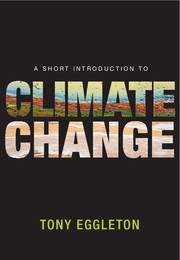Book contents
- Frontmatter
- Contents
- Preface
- 1 The spirit of enquiry
- 2 Global warming
- 3 Weather is not climate
- 4 The thermostat
- 5 Droughts and flooding rains
- 6 Snow and ice
- 7 The ocean
- 8 From ice-house to greenhouse
- 9 The past 2000 years
- 10 Carbon dioxide and methane
- 11 Denial
- 12 Bet your grandchildren’s lives on it, too?
- Notes
- Index
- References
2 - Global warming
Published online by Cambridge University Press: 05 November 2012
- Frontmatter
- Contents
- Preface
- 1 The spirit of enquiry
- 2 Global warming
- 3 Weather is not climate
- 4 The thermostat
- 5 Droughts and flooding rains
- 6 Snow and ice
- 7 The ocean
- 8 From ice-house to greenhouse
- 9 The past 2000 years
- 10 Carbon dioxide and methane
- 11 Denial
- 12 Bet your grandchildren’s lives on it, too?
- Notes
- Index
- References
Summary
To set budding more
And still more later flowers for the bees
Until they think warm days will never cease.
John Keats
We could now be entering a new stage in the history of the Earth. From the dawn of time our planet’s climate has been changed by the life forms it spawned. There was no oxygen in the atmosphere of the early Earth. When microscopic plants evolved in the primordial oceans they generated oxygen, and from then the atmosphere was never the same again. Later, in the warm days, as land plants evolved they drew down abundant carbon dioxide, eventually causing an ice age. How ironic that by burning their long-buried remains we are returning their carbon to the air and in turn we could be changing the world.
There is one vital difference between the climate changes of geologic time and that of today: speed. As we emerged from the last ice age, the average annual global temperature rose by an average of 1°C each 1000 years, then it started to cool again quite slowly, at about two-tenths of a degree each 1000 years. We will see that now it is changing 25 times as quickly in the opposite direction.
- Type
- Chapter
- Information
- A Short Introduction to Climate Change , pp. 11 - 24Publisher: Cambridge University PressPrint publication year: 2012
References
- 1
- Cited by



